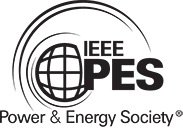2026 IEEE PES ENERGY & POLICY FORUM
23-26 March 2026, Washington D.C.
Hilton National Mall The Wharf
Hilton National Mall The Wharf
Enabling Abundant, Reliable and Affordable Energy
Second Annual IEEE Power & Energy Society & Policy Forum!
Forum Tracks
The forum involves three major tracks:
- Enabling generation technologies for a dependable supply mix
- Supporting evolving electric loads and rapid interconnection
- Modernizing the energy delivery system to overcome challenges and barriers
Submission are invited in all topic areas of energy and policy especially with the following focus:
- Generation
- Hydropower and geothermal energy
- Grid integration of advanced nuclear energy
- Fossil energy
- Loads
- Data Centers and large industrial loads
- Efficient permitting
- Onsite generation
- Modernization
- Cybersecurity
- Supply chain
- Regulatory environment
Have event questions?
Email us at pes-epf@ieee.org.
We appreciate your support and can’t wait to continue the conversation.


